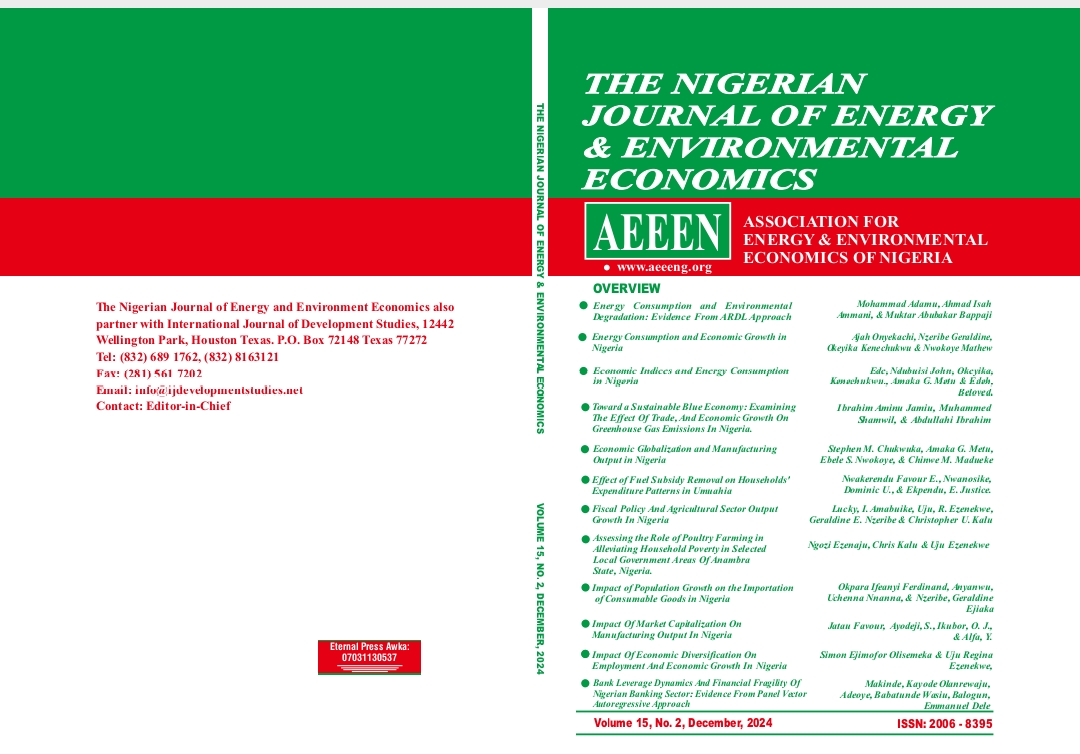ASSESSING THE ROLE OF POULTRY FARMING IN ALLEVIATING HOUSEHOLD POVERTY IN SELECTED LOCAL GOVERNMENT AREAS OF ANAMBRA STATE, NIGERIA.
Keywords:
Household poverty, poultry farming, poverty alleviation, Anambra State.Abstract
This study examined the role of poultry farming in alleviating household poverty in selected
local government areas of Anambra State. Using survey research design, primary data were
collected from 360 respondents using stratified sampling technique. The data were analysed
using descriptive statistics, t-tests and logistic regression models and the results showed that
80.6% of respondents were aware of the policy banning poultry imports, while 68.1% of
poultry farmers were female and 63% were married. The logistic regression analysis revealed
an R-squared value of 57%, indicating a good fit in explaining variations in household poverty
status. The study concludes that poultry farming has a positive and significant impact on
reducing household poverty in the long run. Therefore, it is recommended that the Anambra
State government should integrate poultry farming into its poverty reduction policies. There
should be a strategic implementation plan that employs a bottom-up, community-based
participatory approach throughout all stages of policy execution.


